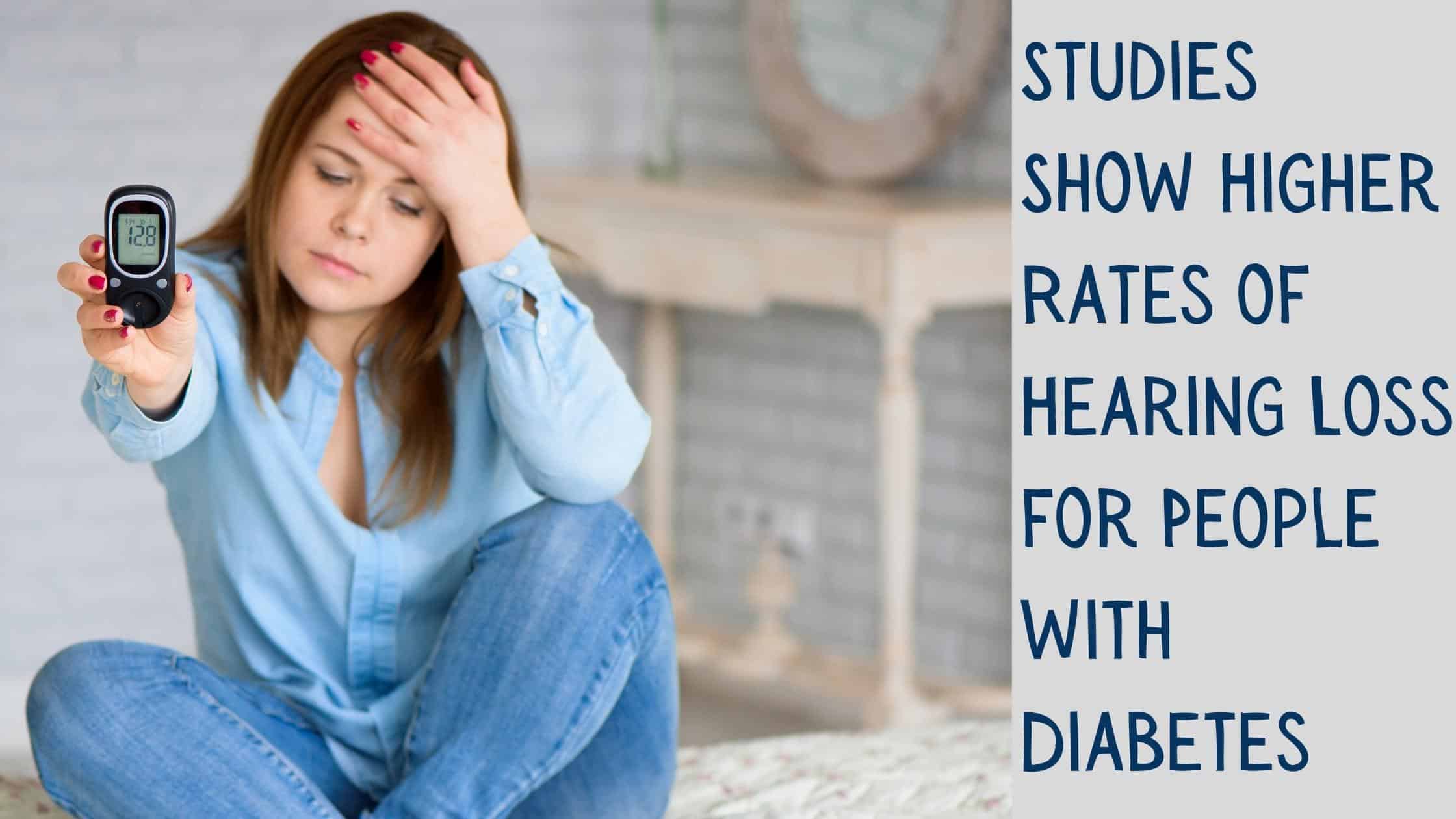Approximately 34.2 million Americans or about 1 in 10 live with diabetes with approximately 88 million or 1 in 3 at risk for developing this condition. This means that our risk for diabetes is rather high.
Diabetes has far-reaching negative health impacts including nerve damage, heart disease, issues with the eyes, feet and hearing. In fact, if you are having issues with your hearing it could be a sign that you may be dealing with diabetes. A recent study found that it is much more likely for patients with diabetes to also suffer from hearing loss, increasing the likeness by 50%!
Understanding Diabetes
To understand how diabetes affects your body it is important to first understand how your body relies on the hormone, insulin that manages blood sugar levels in your body. Diabetes causes your body to produce an insufficient amount of insulin or is unable to efficiently process the hormone, causing your body to produce high blood sugar levels. Too much glucose or sugar in your bloodstream for an extended amount of time can damage the vessel responsible for delivering oxygen-rich blood to your organs. This can have devastating effects if diabetes is ignored or mismanaged including heart disease, kidney damage, nerve damage to extremities such as the feet blurry vision and hearing damage.
Diabetes on the Rise
The terrifying thing is that this comorbidity is on the rise increasing 50% in the US in the past 10 years. The reason that diabetes is on the rise is in most cases due to lifestyle choices. A poor diet high in sugar and processed foods in conjunction with a lack of exercise is one of the major causes of diabetes. Other causes include stress and the use of excessive alcohol and tobacco. US culture is often obsessed with junk food and lack of exercise making this condition increasingly common, particularly in lower-income brackets, where lack of access to healthy foods can cause poor diet choices
Types of Diabetes
One-third of the general public are living with prediabetes, which is when you have high blood sugar levels at risk for developing into what is known as type 2 diabetes. Type 2 diabetes is the most common type of diabetes affecting people of all ages. It occurs when people are able to produce insulin however it is not sufficient or enough to transport glucose into cells, leaving blood sugar levels dangerously high. A less common but just as dangerous form of diabetes is Type 1, mostly affecting children and teens. Type 1 diabetes occurs when the patient is unable to produce the insulin required to move glucose into the cells. This is considered more of an autoimmune issue, as the body attacks beta cells, which produce insulin.
How Diabetes Affects Hearing
While the connection is still being explored researchers have found that the risk of hearing loss is twice as high for patients who have diabetes. The connection most likely lies in diabetes’ effect on the delivery of blood to the ears. The inner ear uses tiny fragile hair cells, which transmit sound waves into electrical pulses to the brain. When glucose is not able to effectively deliver oxygen-rich blood to these inner ear cells they can easily become damaged, causing permanent hearing damage.
How To Protect Your Ears
One way to protect your ears from damage is to protect yourself from diabetes. The incentive is that you are not only protecting your ears, but also your eyes, feet, heart, kidneys and more. It’s important to remember that your health is interconnected so focusing on the health of one part of your body affects the whole. The building blocks for this are diet and exercise, which in turn, also affect mental and emotional health as well as physical. Eat a balanced diet, which prioritizes vegetables and lean meats such as poultry and fish, while minimizing or avoiding processed sugars and foods. Also make sure to get your heart rate up every day for at least 30 minutes. Even a brisk walk outside could do the trick.
If you do suspect you have hearing loss, make an appointment with us today to have your hearing checked. The sooner you deal with hearing loss the sooner you stay connected and engaged to the healthy life you love. We look forward to helping you on your journey to better hearing!

